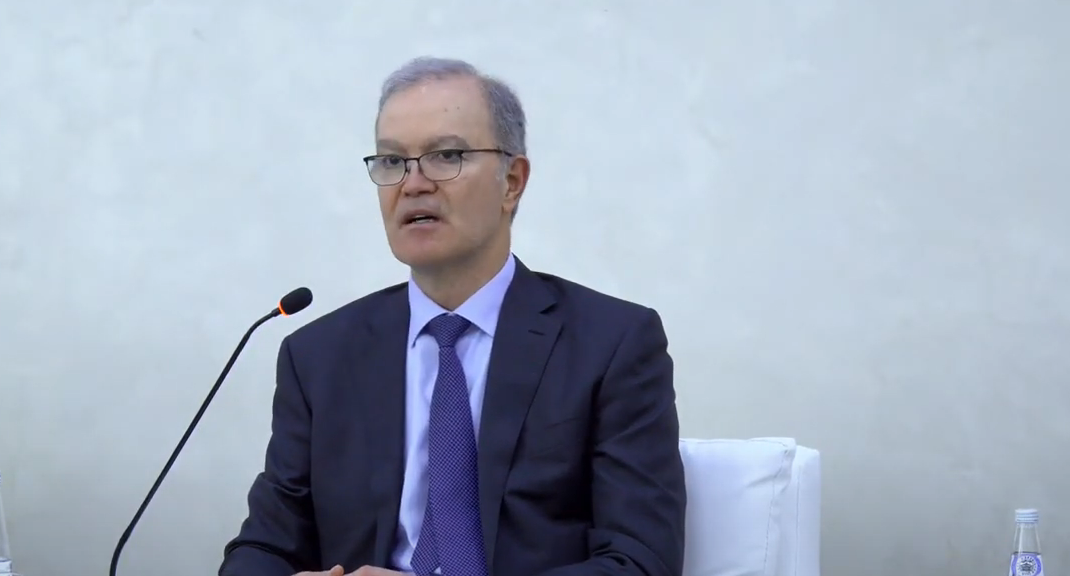BISHKEK, Kyrgyzstan, May 2. Kyrgyzstan’s economy has benefited significantly from remittances and international transfers, contributing to recent macroeconomic improvements, said Thanos Arvanitis, Deputy Director of the IMF’s Middle East and Central Asia Department, Trend reports.
Speaking at a media roundtable held at the Central Bank of Uzbekistan, Arvanitis highlighted notable progress in Kyrgyzstan's economic indicators in recent years.
"Inflation declining from about 16 percent to 7 percent, the fiscal deficits now are more contained, and the public debt has been reduced to about 35–36 percent of GDP. So, there has been significant progress already in recent years. It's true that the Kyrgyz economy received significant support from remittances and international transfers," he said.
However, Arvanitis stressed the importance of long-term resilience. "In a world where there are recurrent shocks, where there is significant uncertainty, certainly Kyrgyz Republic, but also many, many countries in the region need to continue their efforts to build buffers and increase the resilience of the economy," he added.
He outlined key reform priorities including revenue mobilization through reducing tax exemptions, improving customs administration, and reforming state-owned enterprises. "Gradually, the state needs to step back and allow non-strategic sectors of the economy to be passed on to the private sector," Arvanitis said, also stressing the need for investing in education and building human capital.
These efforts, he concluded, would help reduce the economy’s reliance on external transfers and ensure sustainable growth.







